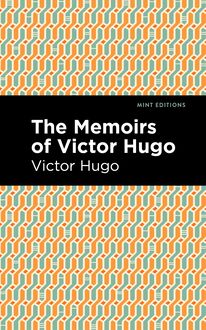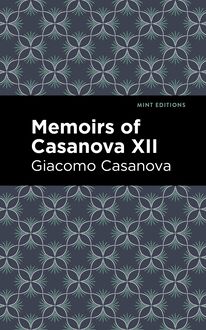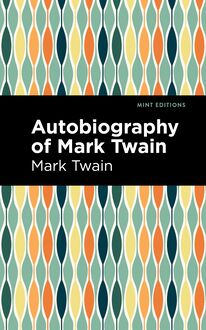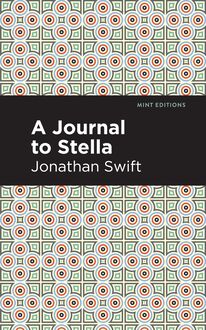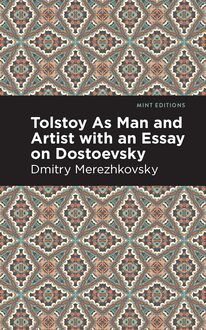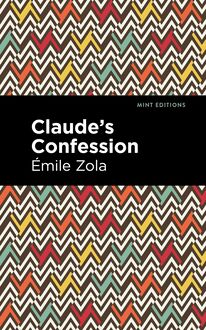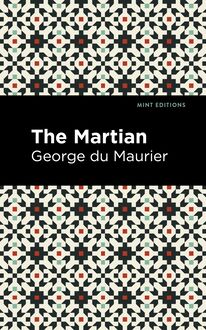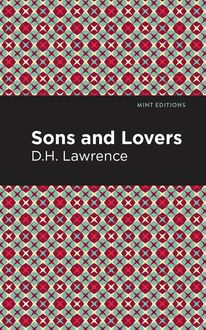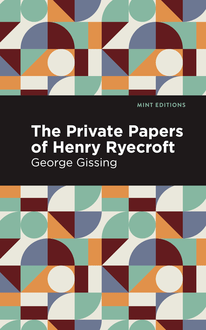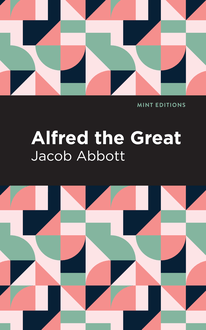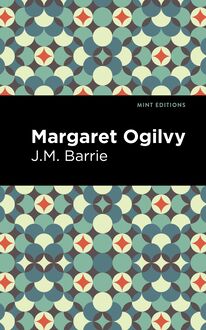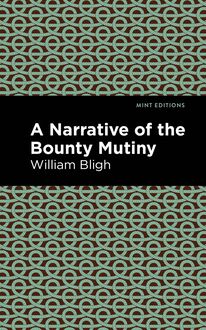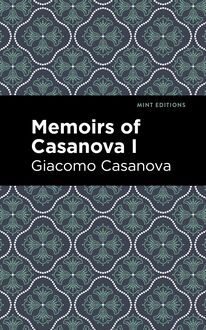-
 Univers
Univers
-
 Ebooks
Ebooks
-
 Livres audio
Livres audio
-
 Presse
Presse
-
 Podcasts
Podcasts
-
 BD
BD
-
 Documents
Documents
-
- Cours
- Révisions
- Ressources pédagogiques
- Sciences de l’éducation
- Manuels scolaires
- Langues
- Travaux de classe
- Annales de BEP
- Etudes supérieures
- Maternelle et primaire
- Fiches de lecture
- Orientation scolaire
- Méthodologie
- Corrigés de devoir
- Annales d’examens et concours
- Annales du bac
- Annales du brevet
- Rapports de stage
La lecture à portée de main
Vous pourrez modifier la taille du texte de cet ouvrage
Découvre YouScribe en t'inscrivant gratuitement
Je m'inscrisDécouvre YouScribe en t'inscrivant gratuitement
Je m'inscrisEn savoir plus
Vous pourrez modifier la taille du texte de cet ouvrage
En savoir plus

Description
The “Genius” (1915) is a novel by Theodore Dreiser. Based partly on his own experience as an artist from the Midwest, The “Genius” examines the nature of talent, the difficulty of desire, and the meaning of faith itself. Although he had high hopes for the novel, reviews were mixed, and sales suffered due to charges of obscenity. Some critics, however, praised Dreiser’s openness on sex and desire, opposing the censorship targeting the author’s work. Eugene Witla may have been born in a small Midwestern town, but his dreams look past the farmland and fields of his youth to the towers and streets of Chicago. He enrolls at the Chicago Art Institute to study painting, but ultimately spends more time with women than he does in class. Despite his desire to continue his faithless ways, Eugene agrees to marry his lover Angela. Together, they move to New York City, where Eugene’s urban realist style is in high demand from critics and galleries alike. At every turn, however, he feels held back by his obligation to Angela, who has no creative inclination and seems happy to live a simple, anonymous life. On a trip to Europe, Eugene suffers a breakdown and ultimately decides to abandon his art, turning to advertising instead. Although he claims to be satisfied, his behavior soon proves otherwise. The “Genius” is a story of romance, heartache, and betrayal that says as much about a single man as it does about the values of an entire society. With a beautifully designed cover and professionally typeset manuscript, this edition of Theodore Dreiser’s The “Genius” is a classic of American literature reimagined for modern readers.
Sujets
Informations
| Publié par | Mint Editions |
| Date de parution | 21 mai 2021 |
| Nombre de lectures | 0 |
| EAN13 | 9781513287393 |
| Langue | English |
| Poids de l'ouvrage | 2 Mo |
Informations légales : prix de location à la page 0,0750€. Cette information est donnée uniquement à titre indicatif conformément à la législation en vigueur.
Extrait
The “Genius”
Theodore Dreiser
The “Genius” was first published in 1915.
This edition published by Mint Editions 2021.
ISBN 9781513282374 | E-ISBN 9781513287393
Published by Mint Editions®
minteditionbooks .com
Publishing Director: Jennifer Newens
Design & Production: Rachel Lopez Metzger
Project Manager: Micaela Clark
Typesetting: Westchester Publishing Services
C ONTENTS B OOK I. Y OUTH I II III IV V VI VII VIII IX X XI XII XIII XIV XV XVI XVII XVIII XIX XX XXI XXII XXIII XXIV XXV XXVI XXVII XXVIII B OOK II. T HE S TRUGGLE I II III IV V VI VII VIII IX X XI XII XIII XIV XV XVI XVII XVIII XIX XX XXI XXII XXIII XXIV XXV XXVI XXVII XXVIII XXIX XXX XXXI XXXII XXXIII XXXIV XXXV XXXVI XXXVII XXXVIII XXXIX XL XLI XLII XLIII XLIV B OOK III. T HE R EVOLT I II III IV V VI VII VIII IX X XI XII XIII XIV XV XVI XVII XVIII XIX XX XXI XXII XXIII XXIV XXV XXVI XXVII XXVIII XXIX
BOOK I
YOUTH
I
T his story has its beginnings in the town of Alexandria, Illinois, between 1884 and 1889, at the time when the place had a population of somewhere near ten thousand. There was about it just enough of the air of a city to relieve it of the sense of rural life. It had one street-car line, a theatre,—or rather, an opera house, so-called (why no one might say, for no opera was ever performed there)—two railroads, with their stations, and a business district, composed of four brisk sides to a public square. In the square were the county court-house and four newspapers. These two morning and two evening papers made the population fairly aware of the fact that life was full of issues, local and national, and that there were many interesting and varied things to do. On the edge of town, several lakes and a pretty stream—perhaps Alexandria’s most pleasant feature—gave it an atmosphere not unakin to that of a moderate-priced summer resort. Architecturally the town was not new. It was mostly built of wood, as all American towns were at this time, but laid out prettily in some sections, with houses that sat back in great yards, far from the streets, with flower beds, brick walks, and green trees as concomitants of a comfortable home life. Alexandria was a city of young Americans. Its spirit was young. Life was all before almost everybody. It was really good to be alive.
In one part of this city there lived a family which in its character and composition might well have been considered typically American and middle western. It was not by any means poor—or, at least, did not consider itself so; it was in no sense rich. Thomas Jefferson Witla, the father, was a sewing machine agent with the general agency in that county of one of the best known and best selling machines made. From each twenty, thirty-five or sixty-dollar machine which he sold, he took a profit of thirty-five per cent. The sale of machines was not great, but it was enough to yield him nearly two thousand dollars a year; and on that he had managed to buy a house and lot, to furnish it comfortably, to send his children to school, and to maintain a local store on the public square where the latest styles of machines were displayed. He also took old machines of other makes in exchange, allowing ten to fifteen dollars on the purchase price of a new machine. He also repaired machines,—and with that peculiar energy of the American mind, he tried to do a little insurance business in addition. His first idea was that his son, Eugene Tennyson Witla, might take charge of this latter work, once he became old enough and the insurance trade had developed sufficiently. He did not know what his son might turn out to be, but it was always well to have an anchor to windward.
He was a quick, wiry, active man of no great stature, sandy-haired, with blue eyes with noticeable eye-brows, an eagle nose, and a rather radiant and ingratiating smile. Service as a canvassing salesman, endeavoring to persuade recalcitrant wives and indifferent or conservative husbands to realize that they really needed a new machine in their home, had taught him caution, tact, savoir faire. He knew how to approach people pleasantly. His wife thought too much so.
Certainly he was honest, hard working, and thrifty. They had been waiting a long time for the day when they could say they owned their own home and had a little something laid away for emergencies. That day had come, and life was not half bad. Their house was neat,—white with green shutters, surrounded by a yard with well kept flower beds, a smooth lawn, and some few shapely and broad spreading trees. There was a front porch with rockers, a swing under one tree, a hammock under another, a buggy and several canvassing wagons in a nearby stable. Witla liked dogs, so there were two collies. Mrs. Witla liked live things, so there were a canary bird, a cat, some chickens, and a bird house set aloft on a pole where a few blue-birds made their home. It was a nice little place, and Mr. and Mrs. Witla were rather proud of it.
Miriam Witla was a good wife to her husband. A daughter of a hay and grain dealer in Wooster, a small town near Alexandria in McLean County, she had never been farther out into the world than Springfield and Chicago. She had gone to Springfield as a very young girl, to see Lincoln buried, and once with her husband she had gone to the state fair or exposition which was held annually in those days on the lake front in Chicago. She was well preserved, good looking, poetic under a marked outward reserve. It was she who had insisted upon naming her only son Eugene Tennyson, a tribute at once to a brother Eugene, and to the celebrated romanticist of verse, because she had been so impressed with his “Idylls of the King.”
Eugene Tennyson seemed rather strong to Witla p è re, as the name of a middle-western American boy, but he loved his wife and gave her her way in most things. He rather liked the names of Sylvia and Myrtle with which she had christened the two girls. All three of the children were good looking,—Sylvia, a girl of twenty-one, with black hair, dark eyes, full blown like a rose, healthy, active, smiling. Myrtle was of a less vigorous constitution, small, pale, shy, but intensely sweet—like the flower she was named after, her mother said. She was inclined to be studious and reflective, to read verse and dream. The young bloods of the high school were all crazy to talk to Myrtle and to walk with her, but they could find no words. And she herself did not know what to say to them.
Eugene Witla was the apple of his family’s eye, younger than either of his two sisters by two years. He had straight smooth black hair, dark almond-shaped eyes, a straight nose, a shapely but not aggressive chin; his teeth were even and white, showing with a curious delicacy when he smiled, as if he were proud of them. He was not very strong to begin with, moody, and to a notable extent artistic. Because of a weak stomach and a semi-an æ mic condition, he did not really appear as strong as he was. He had emotion, fire, longings, that were concealed behind a wall of reserve. He was shy, proud, sensitive, and very uncertain of himself.
When at home he lounged about the house, reading Dickens, Thackeray, Scott and Poe. He browsed idly through one book after another, wondering about life. The great cities appealed to him. He thought of travel as a wonderful thing. In school he read Taine and Gibbon between recitation hours, wondering at the luxury and beauty of the great courts of the world. He cared nothing for grammar, nothing for mathematics, nothing for botany or physics, except odd bits here and there. Curious facts would strike him—the composition of clouds, the composition of water, the chemical elements of the earth. He liked to lie in the hammock at home, spring, summer or fall, and look at the blue sky showing through the trees. A soaring buzzard poised in speculative flight held his attention fixedly. The wonder of a snowy cloud, high piled like wool, and drifting as an island, was like a song to him. He had wit, a keen sense of humor, a sense of pathos. Sometimes he thought he would draw; sometimes write. He had a little talent for both, he thought, but did practically nothing with either. He would sketch now and then, but only fragments—a small roof-top, with smoke curling from a chimney and birds flying; a bit of water with a willow bending over it and perhaps a boat anchored; a mill pond with ducks afloat, and a boy or woman on the bank. He really had no great talent for interpretation at this time, only an intense sense of beauty. The beauty of a bird in flight, a rose in bloom, a tree swaying in the wind—these held him. He would walk the streets of his native town at night, admiring the brightness of the store windows, the sense of youth and enthusiasm that went with a crowd; the sense of love and comfort and home that spoke through the glowing windows of houses set back among trees.
He admired girls,—was mad about them,—but only about those who were truly beautiful. There were two or three in his school who reminded him of poetic phrases he had come across—“beauty like a tightened bow,” “thy hyacinth hair, thy classic face,” “a dancing shape, an image gay”—but he could not talk to them with ease. They were beautiful but so distant. He invested them with more beauty than they had; the beauty was in his own soul. But he did not know that. One girl whose yellow hair lay upon her neck in great yellow braids like ripe corn, was constantly in his thoughts. He worshiped her from afar but she never knew. She never knew what solemn black eyes burned at her when she was not looking. She left Alexandria, her family moving to another town, and in time he recovered, for there is much of beauty. But the color of her hair and the wonder of her neck stayed with him always.
There was some plan on the part of Witla to send these children to college, but none of them showed any great desire for education. They were perhaps wiser t
-
 Univers
Univers
-
 Ebooks
Ebooks
-
 Livres audio
Livres audio
-
 Presse
Presse
-
 Podcasts
Podcasts
-
 BD
BD
-
 Documents
Documents
-
Jeunesse
-
Littérature
-
Ressources professionnelles
-
Santé et bien-être
-
Savoirs
-
Education
-
Loisirs et hobbies
-
Art, musique et cinéma
-
Actualité et débat de société
-
Jeunesse
-
Littérature
-
Ressources professionnelles
-
Santé et bien-être
-
Savoirs
-
Education
-
Loisirs et hobbies
-
Art, musique et cinéma
-
Actualité et débat de société
-
Actualités
-
Lifestyle
-
Presse jeunesse
-
Presse professionnelle
-
Pratique
-
Presse sportive
-
Presse internationale
-
Culture & Médias
-
Action et Aventures
-
Science-fiction et Fantasy
-
Société
-
Jeunesse
-
Littérature
-
Ressources professionnelles
-
Santé et bien-être
-
Savoirs
-
Education
-
Loisirs et hobbies
-
Art, musique et cinéma
-
Actualité et débat de société
- Cours
- Révisions
- Ressources pédagogiques
- Sciences de l’éducation
- Manuels scolaires
- Langues
- Travaux de classe
- Annales de BEP
- Etudes supérieures
- Maternelle et primaire
- Fiches de lecture
- Orientation scolaire
- Méthodologie
- Corrigés de devoir
- Annales d’examens et concours
- Annales du bac
- Annales du brevet
- Rapports de stage
